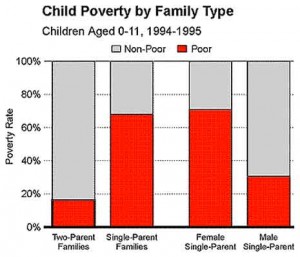 THUNDER BAY – Ontario is currently studying how social welfare payments are made. Across Canada there are serious concerns over the requirements to receive social assistance. A new report from the National Council of Welfare (NCW) shows that welfare can be harder to get today than 20 years ago. This means more people were forced into destitution to qualify for welfare in 2009, when the recession’s casualties were mounting.
THUNDER BAY – Ontario is currently studying how social welfare payments are made. Across Canada there are serious concerns over the requirements to receive social assistance. A new report from the National Council of Welfare (NCW) shows that welfare can be harder to get today than 20 years ago. This means more people were forced into destitution to qualify for welfare in 2009, when the recession’s casualties were mounting.
Canadians cannot receive welfare if their liquid assets, such as cash, money in bank accounts, or even retirement savings, are over the limit set for their particular circumstances. The NCW report, Welfare Incomes 2009, illustrates many cases where these asset limits have eroded, whether by inflation or design. The limit can be as low as $50.
NCW Chairperson John Rook explained there is great variability across provinces, territories and individual situations, “but in general the combination of low asset limits, low earnings exemptions and low welfare rates—far below the poverty line—creates the perfect trap, especially for single people. The absence of shock absorbers and springs that help people help themselves is completely counterproductive.”
Getting a job is not the answer it should be. In some Canadian jurisdictions, there are no earnings exemptions at all and welfare benefits are reduced dollar-for-dollar by the amount earned. In such cases, people on welfare are left financially worse off once work-related costs, such as transportation, are taken into account.
Rook said the NCW does not just want to see people exit welfare, but to escape poverty and to thrive.
Don Drummond, former Chief Economist of the TD Bank, commenting on the report, said “Canada’s welfare system is a box with a tight lid. Those in need must essentially first become destitute before they qualify for temporary assistance. But the record shows once you become destitute you tend to stay in that state. You have no means to absorb setbacks in income or unexpected costs. You can’t afford to move to where jobs might be or upgrade your skills.”
For those who do exit welfare, their finances do not necessarily improve because they lose welfare-related support, such as housing, health and dental care. The loss of this support can mean a major setback for these people, said Rook, and it is a large part of the disincentive barrier called ‘the welfare wall’.
The report says more effective approaches can achieve better results and points to examples of innovation and potential. Manitoba’s new liquid asset policy of allowing $4000 per person, up to $16,000 for families, makes it a leader. Lone parents in some other provinces get welfare rates that at least reach the poverty line. Raising asset and earnings limits, bringing rates up and making regular adjustments for inflation can be a part of the solution, but alone are not enough.
“To solve the problems of social assistance, we must literally think—and act—outside the box,” said Rook, “in this case, outside the welfare system.” He indicated federal child benefits provide a source of stable income for families with children and play an important role in reducing welfare use and preventing poverty. Welfare Incomes 2009 focuses on the newer Working Income Tax Benefit (WITB), which also operates outside the welfare system. It is available to welfare recipients with earnings and thus helps work pay. The WITB goes in the right direction, according to the report, but the amounts need to be increased to help welfare recipients, particularly singles, avoid or overcome the ‘welfare wall’.
The report calls for a comprehensive approach to both income support and the provision of appropriate services geared to income level rather than welfare status. The Council is encouraged by poverty reduction strategies that take this approach and is confident these kinds of investments will pay off for all Canadians.
The report and additional documentation are available at www.ncw.gc.ca.
